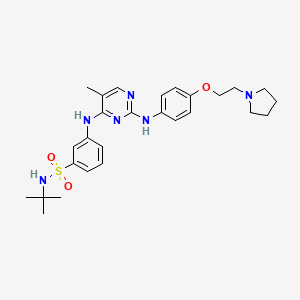Friday, September 11, 2015
JAK2 inhibitor ruxolitinib shows promise in treating CMML patients
Wednesday, October 2, 2019
FDA Approves Jakafi (ruxolitinib) for the Treatment of Patients with Acute Graft-Versus-Host Disease

“For the first time, patients with steroid-refractory acute GVHD, and the physicians that treat them, have an FDA-approved treatment for this serious disease,” stated Hervé Hoppenot, Chief Executive Officer, Incyte. “This approval is also an important milestone for Incyte, as it marks the third indication for Jakafi in the United States, further underscoring Incyte’s commitment to delivering innovative medicines for patients in need. We are proud of the impact Jakafi has had on patients’ lives to-date and are dedicated to advancing our ongoing research in JAK inhibition to serve more GVHD patients in the future.”
“Every year in the United States, about half of the people who develop acute GVHD do not respond adequately to steroids, making it an extremely challenging disease to treat,” said Madan Jagasia, M.B.B.S., M.S., M.M.H.C., a lead investigator on the REACH1 trial and Professor of Medicine, Vanderbilt University Medical Center, Department of Medicine, Division of Hematology-Oncology and Chief Medical Officer, Vanderbilt-Ingram Cancer Center. “While allogeneic stem cell transplants have the potential to transform people’s lives, the onset of acute GVHD can significantly impact their prognosis. I am excited that we now have Jakafi as a new treatment option for acute GVHD patients that do not respond to corticosteroids who, until now, have had limited choices.”
Saturday, December 4, 2021
FDA Approves Opzelura (ruxolitinib) Cream for the Treatment of Atopic Dermatitis (AD)
In continuation of my update on Opzelura (ruxolitinib) , Incyte (Nasdaq:INCY)announced the U.S. Food and Drug Administration (FDA) approval Opzelura™ (ruxolitinib) cream for the short-term and non-continuous chronic treatment of mild to moderate atopic dermatitis (AD) in non-immunocompromised patients 12 years of age and older whose disease is not adequately controlled with topical prescription therapies, or when those therapies are not advisable. Opzelura is the first and only topical formulation of a JAK inhibitor approved in the United States. Research shows dysregulation of the JAK-STAT pathway contributes to key features of AD such as itch, inflammation and skin barrier dysfunction.
“Atopic dermatitis is a chronic immune-mediated disease that can be challenging to manage. Many patients do not respond well to existing treatments and have uncontrolled disease,” said Jonathan Silverberg, M.D., Ph.D., M.P.H., Associate Professor of Dermatology and Director of Clinical Research and Contact Dermatitis at The George Washington University School of Medicine and Health Sciences. “As a clinician, I am excited to have a non-steroidal topical cream like Opzelura.”
“The approval of Opzelura is an important advancement in the treatment of AD, and we are pleased to offer a novel topical treatment option that targets a pathway believed to be a source of inflammation,” said Hervé Hoppenot, Chief Executive Officer, Incyte. “At Incyte, we are committed to transforming the treatment of immune-mediated dermatologic conditions like AD. We look forward to bringing Opzelura to the patient community and also continuing to explore its potential in other challenging skin diseases.”
The FDA approval was based on data from the TRuE-AD (Topical Ruxolitinib Evaluation in Atopic Dermatitis) clinical trial program, consisting of two randomized, double-blind, vehicle-controlled Phase 3 studies (TRuE-AD1 and TRuE-AD 2) evaluating the safety and efficacy of Opzelura in more than 1,200 adolescents and adults with mild to moderate AD. Results from the studies showed patients experienced significantly clearer skin and itch reduction when treated with Opzelura cream 1.5% twice daily (BID), compared to vehicle (non-medicated cream):
- Significantly more patients treated with Opzelura achieved Investigator’s Global Assessment (IGA) Treatment Success (IGA-TS, primary endpoint) at Week 8 (defined as an IGA score of 0 [clear] or 1 [almost clear] with at least a 2-point improvement from baseline): 53.8% in TRuE-AD1 and 51.3% in TRuE-AD2, compared to vehicle (15.1% in TRuE-AD1, 7.6% in TRuE-AD2; P<0.0001).
- Significantly more patients treated with Opzelura experienced a clinically meaningful reduction in itch from baseline at Week 8, as measured by a ≥4-point reduction in the itch Numerical Rating Scale (itch NRS4): 52.2% in TRuE-AD1 and 50.7% in TRuE-AD2, compared to vehicle (15.4% in TRuE-AD1, 16.3% in TRuE-AD2; P<0.0001), among patients with an NRS score of at least 4 at baseline.
In clinical trials, the most common (≥1%) treatment-emergent adverse reactions in patients treated with Opzelura were nasopharyngitis, diarrhea, bronchitis, ear infection, eosinophil count increased, urticaria, folliculitis, tonsillitis and rhinorrhea2. See Important Safety Information below, including Boxed Warnings for serious infections, mortality, malignancy, major adverse cardiovascular events and thrombosis, seen with JAK inhibitors for inflammatory conditions.
“It can be hard for people to fully appreciate how difficult AD can be and the tremendous impact it has on patients,” said Julie Block, President & CEO, National Eczema Association. “The chronic itch is difficult to cope with and related sleep issues can be exhausting. Many patients and their dermatologists are looking for additional options to meet current unmet needs in the management of AD. The approval of Opzelura is exciting news, and we welcome a new treatment option for our community.”
AD is a chronic skin disease affecting more than 21 million people aged 12 years and older in the U.S. and is characterized by inflammation and itch3. Signs and symptoms include irritated and itchy skin that can cause red lesions that may ooze and crust. People with AD are also more susceptible to bacterial, viral and fungal infections.
Saturday, March 3, 2012
New Drug, Ruxolitinib May Help Fight Rare Bone Marrow Disorder
Tuesday, September 15, 2015
Targeted drug can ‘diminish the suffering’ of myelofibrosis
Saturday, January 25, 2020
FDA Approves Inrebic (fedratinib) for the Treatment of Patients With Myelofibrosis

“The approval of Inrebic is another important milestone for Celgene and underscores our commitment to people living with blood cancers,” said Jay Backstrom, M.D., M.P.H., Chief Medical Officer for Celgene. “We are excited to provide Inrebic as a new treatment option that may be used in patients with myelofibrosis, including patients previously treated with ruxolitinib.”
“Myelofibrosis can cause patients to suffer in many ways, including experiencing debilitating symptoms,” said Ruben Mesa, M.D., FACP, Director of the Mays Cancer Center at UT Health San Antonio Cancer Center MD Anderson. “There has not been a new treatment approved for this disease in nearly a decade. With Inrebic, physicians and patients now have another option available for myelofibrosis.”
“Inrebic is a much-welcomed new treatment for the myelofibrosis community,” said Ann Brazeau, Chief Executive Officer and Founder, MPN Advocacy and Education International. “This FDA approval marks an important milestone for people living with myelofibrosis as we embark on making greater strides in the diagnosis, understanding and treatment of this disease.”
Monday, August 8, 2011
Wednesday, May 8, 2019
U.S. FDA Grants Priority Review for Fedratinib New Drug Application in Myelofibrosis



